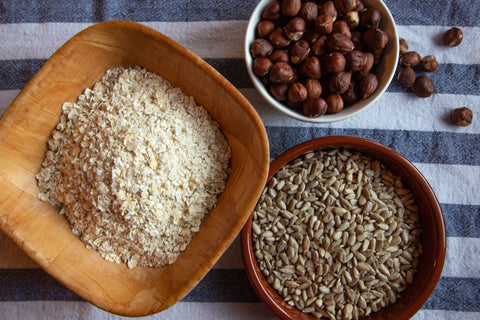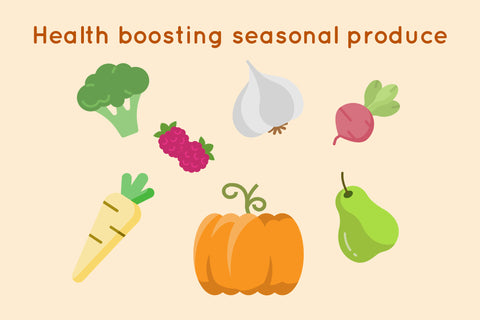How to get all your nutrients from a vegan diet
Posted on February 15 2019

We’ve all been told eating your veg is a key to being healthy. But when you’re cutting out a whole food group, it can be more complicated. It means paying careful attention to what you eat or supplementing your diet to fill in the gaps. The thing is, the supplements you need can greatly vary depending on the foods you’re eating. So, it’s important to make note of the nutrition you get from your regular diet and be sure to find out if you’re missing anything in order to keep your body well nourished. Here are some vitamins and minerals to keep an eye on if you’re keeping up a vegan diet:

Vitamin B12
Vitamin B12 is only found naturally in foods from animal sources, so a supplement is often needed if you’re eating a plant-based diet. This nutrient prevents nerve damage, protects the heart, and supports your overall energy level and immune system.1 Fortified veggie foods including breakfast cereals, dairy alternatives, and nutritional yeast serve up some B12, but most vegans need to take a daily supplement. It’s important to make sure you’re not experiencing a lack of B12 in your diet. Early, mild symptoms of vitamin B12 deficiency include:
- Fatigue
- Depression
- Anxiety
- Loss of appetite
- Numbness or tingling in the hands and feet
- Poor memory.
It’s crucial for brain function, and memory problems are one of the most commonly reported cognitive issues associated with a lack of B12.2

Vitamin D
Most people have trouble getting enough Vitamin D whether they’re vegan or not. It’s got a long list of benefits that can ensure a healthy body. We’ve long known that Vitamin D is key for bone health because it is needed for our body to absorb calcium.3 More recently, vitamin D has been making headlines because good vitamin D status in the body has been linked to everything from a healthy immune system to healthy skin. With all these headlines and few foods that naturally contain vitamin D, it’s no wonder vitamin D supplementation is on the rise.
According to the NHS, one in five people in the UK suffers from low vitamin D levels. A deficiency can cause fatigue, depression, and muscle pain, amongst other symptoms.4 So, it’s worth taking a supplement to keep your Vitamin D levels on the up if you’re not getting enough.

Omega 3
Omega-3 fatty acids may help keep inflammation in check—and inflammation plays a role in lots of chronic diseases including diabetes, cardiovascular disease, neurological diseases, inflammatory bowel disease (IBS), and cancer.5 The best sources of good Omega-3s are fatty fish like salmon, mackerel and tuna, so it’s easy to be at risk of a deficiency if you’re eating a vegan diet. Considering how critically important EPA and DHA are to human health, supplementation is probably a good idea for most people – and especially for those who don’t eat consistent amounts of salmon or other high-fat fish.

Zinc
You might have heard about taking a zinc supplement when you feel like you’re getting sick. This is because getting enough of this essential mineral is key in boosting your immune system, in addition to helping your body heal wounds, make DNA, and divide cells.6 Meat eaters can get most of their zinc from red meat, poultry and shellfish, whereas common vegan sources include fortified bread and cereal, legumes and nuts. Plant foods can be a good source, but the zinc in plants is sometimes bound to phytates, making it more difficult for the body to absorb. Soaking and sprouting can help reduce the phytates, but even then, many plant-based eaters struggle to get the optimal amount. The reality is, many vegans, vegetarians, and plant-based eaters may be deficient in their zinc levels.7 Supplementing with zinc may be the best option for plant-based eaters.
What to remember
Even with a well-planned vegan diet, you might find you can’t fulfil all your nutritional needs. This is where supplements come in. If you’re not meeting your dietary requirements, you should consider supplementing so you’re not missing out on essential nutrients.

Shop Zinc Methionine now >




